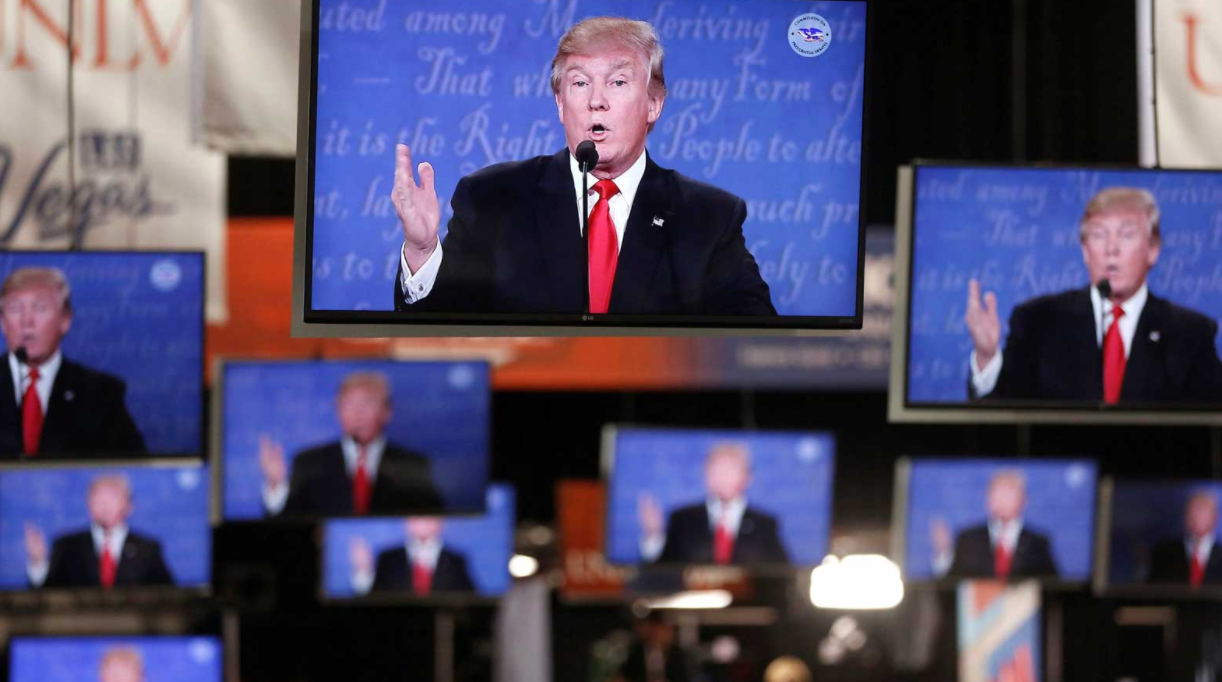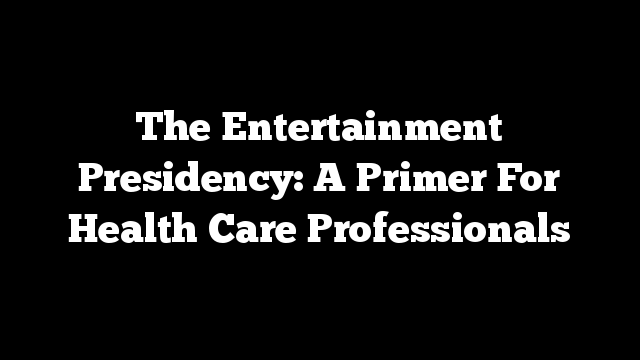
Many physicians have expressed dismay at the conduct of US president Donald Trump. But whether colleagues find his politics objectionable or congenial, his conduct bold or vulgar, and the man himself an imbecile or a genius, it is important for healthcare professionals to understand that the Trump presidency is a predictable consequence of our times. In particular, it is an entirely natural outgrowth of the forms of media that characterize our age.
The Medium Becomes the Message
In 1964, media theorist Marshall McLuhan famously declared the medium the message. McLuhan argued that the consciousness of a people is more profoundly shaped by media themselves – for example, Gutenberg’s movable print, radio, or television – than by the content they convey. To understand the character of a presidency, McLuhan would argue, we need to shift our attention from specific policies to the media by which the president operates.
When candidates Abraham Lincoln and Stephen Douglas engaged in their famous 1858 debates for an Illinois Senate seat, broadcast media had not yet been invented, and the newspaper dominated. As print media, newspaper articles could examine a candidate’s position on an issue in great depth, and 19th century debate audiences expected candidates to develop real arguments for their policies. As a result, each of the Lincoln-Douglas debates was formatted to last three hours.
Today’s media prefer sound bites. In fact, McLuhan argued that the medium of television operates “at the speed of light.” It permits “no continuity” and “no connection.” Instead, he said, with television, “It’s all just a surprise.” In contrast to the time Lincoln took to carefully craft his arguments, a television president might be expected to rely less on argument than on astonishment, not taking the time to trouble himself over non-sequiturs and contradictions.
Those baffled at Trump’s trajectory must concede that he has mastered the media of our age, especially television. He became a national media phenomenon largely through his role on “The Apprentice,” where he starred between 2004 and 2015, and from which he boasted that he had earned $214 million. It has also been widely reported that Trump relies far more than any of his predecessors on television as his principal window on the world.
McLuhan predicted that television would breed a culture of spontaneity and impatience. He likened the situation to the left and right hemispheres of the brain. The left expects everything to be “connected, logical, and goal-oriented.” But the ascendancy of television brings a shift to the right, which makes “the old left hemisphere world, which is our educational and political establishment, look very foolish.”
A television president might look foolish to the traditional educational and political establishment, but he might also make those establishments appear foolish to a television-saturated public. The modus operandi of such a president would be not reasoned argument, for which the medium of television has little tolerance, but the creation of associations, in much the same way that an advertiser might brand products.
Statecraft Becomes Show Business
This point was amplified by another media theorist, Neil Postman, who contended that television is a supremely visual medium that rejects ideas. In his 1985 book Amusing Ourselves to Death, Postman argued that “It is in the nature of the medium that it must suppress the content of ideas to accommodate the requirements of visual interest; that is to say, to accommodate the values of show business.”
In effect, Postman carries McLuhan’s central point even further, arguing that the medium becomes not just the message but our “dominant means for construing, understanding, and testing reality.” Recognizing that appealing to the emotions of the television audience is far more important than any rational argument, and that the medium is suited to nothing better than entertainment, a television president would naturally emphasize show over substance.
What would a generation of viewers – or even a second or third generation – reared on television expect from its president? To answer such a question, we need but imagine a person who has read little but watched a million television commercials. Such a person, Postman wrote, would “expect political problems to have fast solutions through simple measures,” and would think that “complex language is not to be trusted” and that “all problems lend themselves to theatrical expression.”
Twitter Becomes Twaddle
These liabilities are only amplified when we consider what would likely constitute an entertainment president’s preferred medium for messaging: Twitter. With a 140-character limit on tweets, such messaging richly rewards the ability to further simplify the message, placing an even greater premium on what entertains, or even better, outrages. The goal is not so much to inform or persuade but to grab and keep tight hold of the public’s attention, at which Trump has exceled.
At the core of McLuhan’s and Postman’s critiques lies a charge of immaturity that could also be leveled at a Twitter presidency. Both men died before Twitter was invented, but they would likely echo journalist Clive Thompson’s 2008 assessment that the new medium has elevated narcissism to “a new, super-metabolic extreme – the ultimate expression of a generation of celebrity-addled youths who believe their every utterance is fascinating and ought to be shared with the world.”
No one can predict with certainty the ultimate verdict of history on the entertainment presidency. We can, however, characterize with great confidence the irresistible effect of contemporary mass media on the messages transmitted to us through political discourse. Some people hate Donald Trump. Others love him. But all health professionals can agree that he has high entertainment value, and given the media that dominate our age, such a presidency is all but inevitable.
